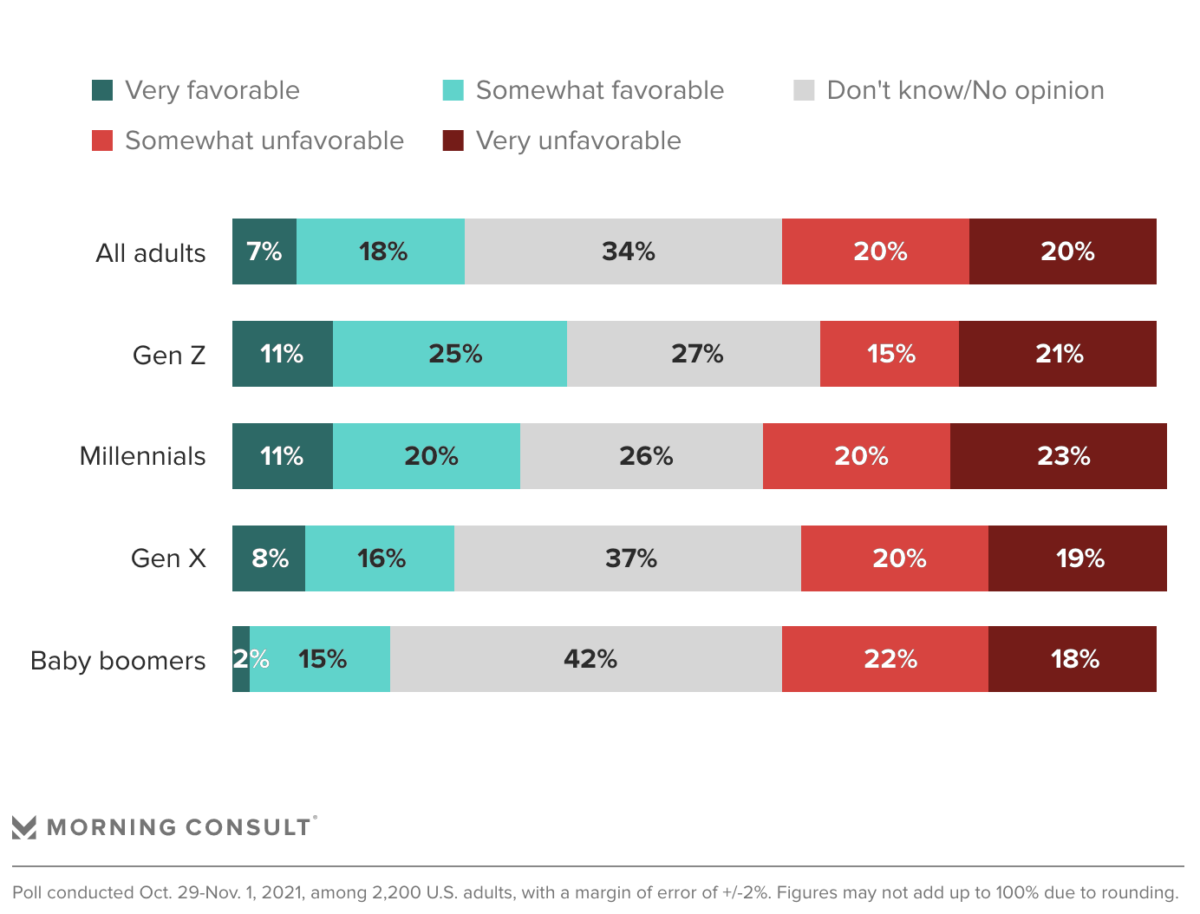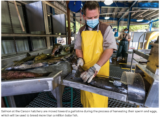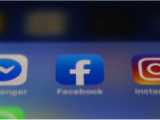
A worker picks up trash in front of a new logo and the name ‘Meta’ on the sign in front of Facebook headquarters on October 28, 2021 in Menlo Park, California. A new name and logo were unveiled at Facebook headquarters after a much anticipated name change for the social media platform: Justin Sullivan/Getty Images
Staff Report –
A week after Facebook Inc. announced its new corporate name Meta, along with a new logo as part of the company’s strategic shift toward focusing on the metaverse, the public’s initial reaction to the rebrand is less than enthusiastic, according to new data from Morning Consult.
Americans feel even more unfavorably toward Facebook CEO Mark Zuckerberg, who has a net favorability rating of negative 32 points. More than half of adults (54 percent) said they have an unfavorable opinion of him, compared with 22 percent who said they few him favorably.
A plurality of Americans said they have an unfavorable opinion of the new name. Meta’s new logo received a slightly less chilly reception, with respondents more evenly split on the warped infinity symbol.
Facebook itself still enjoys a net favorability rating of 16 percentage points, with 55 percent of U.S. adults saying they have a favorable opinion and 39 percent saying they have an unfavorable opinion of the social media giant.
People are not fans of the Meta name, however. One-quarter of adults (25 percent) said they have a favorable opinion of Meta, while 40 percent said they have an unfavorable opinion. Roughly one-third (34 percent) said they have no opinion.
Consumers feel less strongly about the Meta logo. Roughly 1 in 3 (32 percent) said they have a favorable opinion of the symbol after they were shown a photo of it. A similar share (30 percent) reacted unfavorably, and 37 percent said they have no opinion about it.
Generation Z, a group known for its vocal skepticism and criticism of large corporations, expressed greater enthusiasm for the new logo than the general public. Forty-four percent of that cohort said they have a favorable opinion of the logo, compared to 31 percent who said the opposite, resulting in a net favorability rating of 13 points.
Facebook has said it hopes to attract more young users as part of its shift toward building the metaverse.
According to the public opinion survey research from Morning Consult, majorities of Americans across all demographics say they are not ready to enter the “Zuckerverse.”
Most consumers aren’t sold on the metaverse yet: 68 percent said based on what they know, they’re not interested in using Meta’s virtual and augmented reality project.
The strongest interest in the metaverse comes from men and younger generations, as well as adults who live in urban areas.
About half of consumers think Meta’s name change is just a public relations gambit to dodge recent bad publicity.
Zuckerberg told the public that the new corporate name is meant to better “reflect who we are and the future we hope to build,” a reference to his aspirations of building a metaverse, which he describes as “an embodied internet where you’re in the experience, not just looking at it.” The public, however, is not so sure that’s Meta’s main motivation for changing its name.
Roughly half (51 percent) of Americans said that if they had to guess, they would say Meta rebranded in an effort to distance itself from “negative press.” The company has been the subject of scrutiny following the leak of internal documents that have come to be known as the “Facebook Files” or “Facebook Papers.”
Less than half of consumers, 44 percent, said they had heard about these leaked documents. Was the news suppressed on Facebook?
This survey was conducted Oct. 29-Nov. 1 interviewing 2,200 adults in the U.S., with a margin of error of plus or minus 2 percentage points. Figures may not add up to 100% due to rounding.
___
If you support truth in reporting with no paywall, and fearless writing with no popup ads or sponsored content, consider making a contribution today with GoFundMe or Patreon or PayPal.














